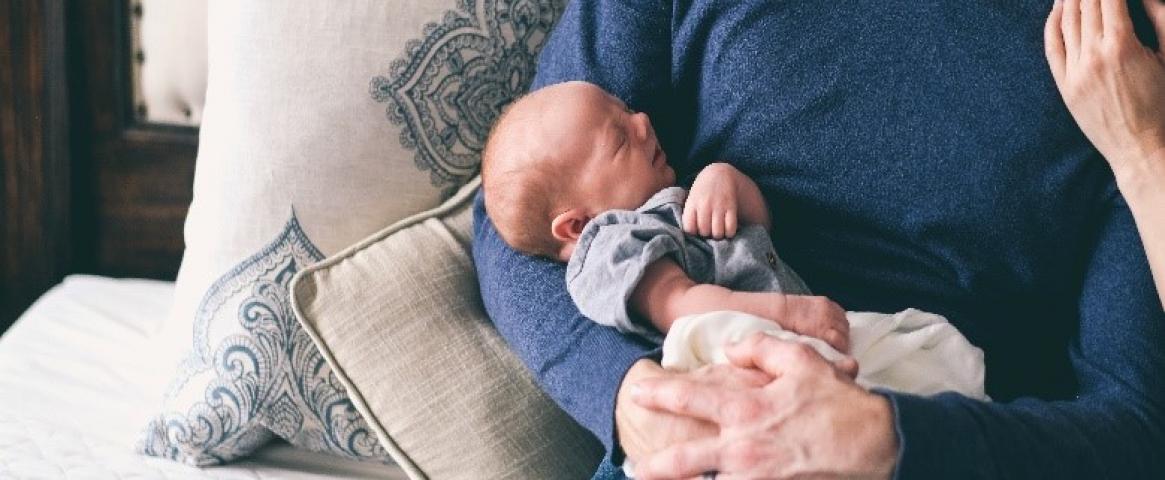By Nadia Rajab
The spotlight on prenatal and postpartum depression has long been placed on mothers, with fathers often forgotten and left in the dark. But fathers, too, are at high risk of experiencing chronic depressive symptoms when their infants are born very pre-term, a new study shows. Although fathers are not seen as patients of a maternity service, the new findings highlight the importance of including fathers in ongoing mental health screening and support.
Little has been known about fathers’ mental health beyond the early weeks and months following pre-term birth. Despite observations of mental health symptoms in a large proportion of fathers after pre-term birth, research had not been conducted on symptoms over time. A new study assessed 100 fathers of very preterm infants, born prior to 32 weeks gestation, for depressive and anxiety symptoms before birth and throughout the first year after birth. The researchers observed father interacting with their babies and asked fathers to complete self-report questionnaires.
“With 1 in 5 fathers showing symptoms, this is higher than what you would see in the general population,” says Grace McMahon, a doctoral researcher from Monash University, who led this research. “Hopefully this research will inform the need to screen and support these dads. They need ongoing screening and support because we have shown that these symptoms are often chronic.’’
McMahon’s team published the findings in August in the Journal of Pediatric Psychology.
The researchers were also interested in how symptoms of mental health impacted how the fathers bonded with their babies. Assessment of their parenting behaviours was carried out through observational analysis of a semi-structured play interaction. ‘’The dads that experienced persistently high symptoms displayed similar parenting behaviours with those that experienced persistently low symptoms,’’ says McMahon, concluding that fathers of pre-term babies bond with their babies despite struggling with mental health issues. McMahon hopes this will provide some reassurance to the fathers.
Jacqui Macdonald, a Senior Research Fellow from Deakin University and Honorary Fellow at the Murdoch Children’s Research Institute and Department of Paediatrics at the University of Melbourne in Victoria, comments that the study is ‘‘an important contribution to understanding the specific risks for fathers of pre-term infants. These dads have a specific set of vulnerabilities that range from a fear of loss of their infant, concerns about future infant health, immediate pressures associated with extended hospital stays and uncertainty about what family life will look like.’’
There are a number of services and organisations currently attempting to provide support to fathers and address the imbalance. The Centre of Perinatal Excellence (COPE), based in Melbourne, received government funds to develop a Hospital to Home and Wellbeing Program and a new digital mental health screening tool, iCOPE, for new parents. Nicole Highet, founder and executive director of COPE, says that “the Prime Minister’s Perinatal Mental Health Check will for the first time progress towards offering screening for dads.” The iCOPE platform has the potential to be applied to same-sex partners, although it will require more research to understand the experiences of same-sex parents and the required clinical cutoffs for intervention.
The new research highlights that fathers of preterm infants are a high-risk population. ‘‘Research like this paper reveals subgroups of fathers who might benefit most from targeted screening and support, which helps us to plan where to invest resources to support new families,’’ says Macdonald.
She notes that universal routine screening is not yet commonplace. In addition to overcoming stigma surrounding mental health, the health care system will also need to ensure that health care providers, including midwives and maternal child health nurses, have the necessary training and knowledge to refer fathers. “But increasingly, general practice, perinatal and family health services are becoming aware of the risks of mental health problems for new fathers and indicating a willingness and commitment to building a support system inclusive of dads,” says Macdonald.
Nadia Rajab is a doctoral researcher at the University of Melbourne/CSIRO Future Science Platform. Follow her on Twitter @wecandoscience or email her at nrajab.gla@gmail.com.
This story was produced as part of NASW's David Perlman Summer Mentoring Program, which was launched in 2020 by our Education Committee. Rajab was mentored by Jill Sakai.


